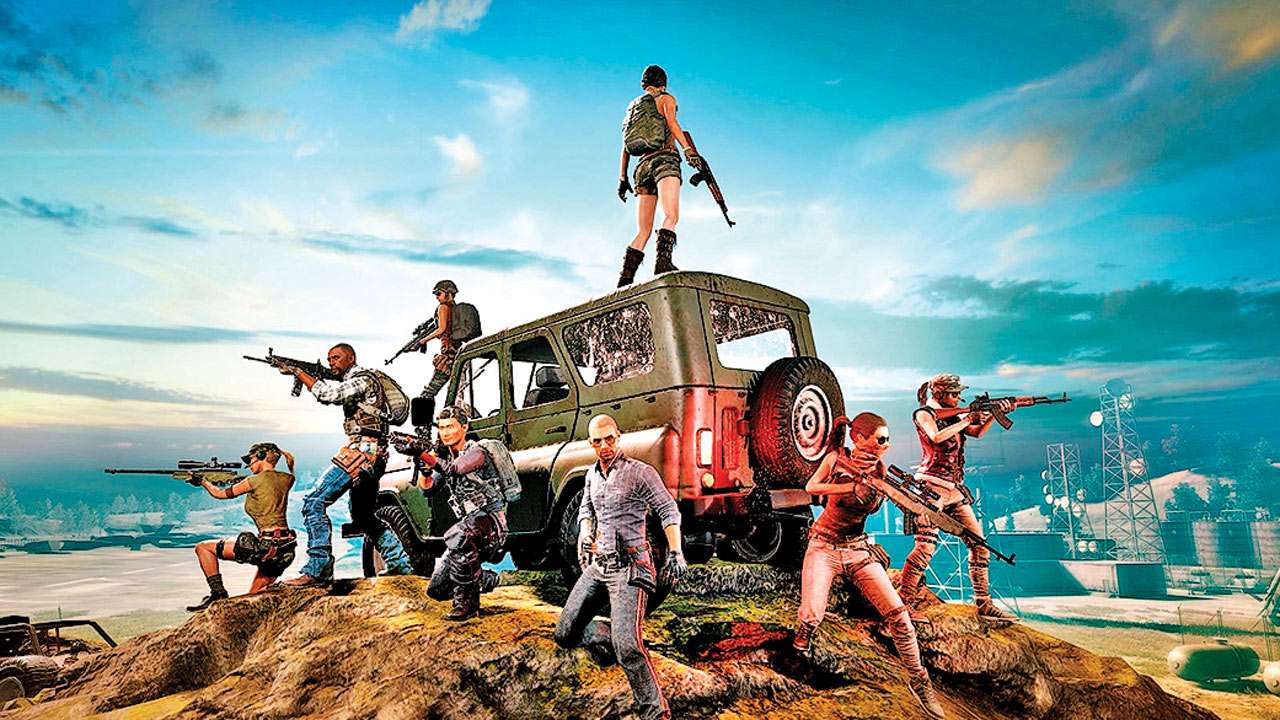
PUBG is the latest gaming revolution in India, as its graphics are revolutionary by mobile gaming standards. A Goan IT minister called it a demon, and even the otherwise non-responsive Prime Minister of India has acknowledged. But why PUBG has arrived is because of the very nature of the medium (gaming) and its own ubiquitous developments that are closely associated with the nature of war.
PlayerUnknown’s Battlegrounds or PUBG is a multiplayer game where players embark on a deathmatch – every man/woman/child looks out for themselves. In the months since its release, PUBG has been at the center of a series of news pieces in which middle-class urban disenfranchised youth have stabbed relatives for not allowing them to charge their phones so they could continue playing the game, committed suicide when denied the latest phone model, and, in one case, asked their parents to seek a ban from the High Court. PUBG and its predecessors of mobile games signal big money and big investment into India’s mobile gaming market.
But PUBG, though aggressively marketed by Tencent Holdings Limited in the gaming market, is not a new phenomenon. Though about two years old, like most games it is not the first iteration of such ‘Battle-royale’ style of games (The battle royale genre tends to emerge in popular consciousness after the release of the manga and novel titled Battle Royale (1999), created by Koushun Takami, where gamers are compelled to fight each other to the death in a program run by a dictatorial Japanese government, like the popular YA novels and films ‘Hunger Games’. Its lead game designer, Brendan Greene, whose nickname in game forms the “PlayerUnknown” part of PUBG, had been involved in the creation of DayZ, a zombie apocalypse title has you not only trying to survive a reanimated ‘other’, but also battling threats from fellow players. It tells of a complete collapse of society, as if the removal of our Sisyphean existence birthed by neo-capitalism will mean the end of humanity.
Greene has been a vocal supporter of games like Delta Force: Black Hawk Down and America’s Army, the latter especially problematic. The US military had curated it for $7.5 million, and at its peak in 2009, it reached a player base of nearly 10 million. Greene has also never shied from openly talking about how Hunger Games influence him. Meanwhile, Bluehole Studios in South Korea along with several studios across Asia, in the last 10 years, been developing massively multiplayer online role-playing games like TERA. These mostly maintain a facade of a storyline, but generously borrow from mythologies to create a form of pulp fiction. But when they saw the opportunity to create a title like PUBG, they seized it and brought their technology and design capabilities together with Greene’s design vision. And so, PUBG was born.
Lessening of storylines, or parts of games that force a player to use their imagination has been a trend for the past 10 years. In fact, when the massively popular Defense of the Ancients (DoTA) by American video game developer Valve, was released as a ‘free to play’, it got locked in a lawsuit with Blizzard, the mothership of game lore. DoTA couldn’t use certain names as heroic titles. As if Blizzard could copyright elves! Still, the laziness expressed by Valve back then and even now means there isn’t a coherent attempt at forming a universe, there are several parts to it, but there is no larger narrative. And players are not bothered by an absence of it. In a complete reversal of trends, Blizzard has been struggling to reinvent their titles for a newer and hungrier generation of children who are too young to remember their titles. And most older gamers invariably worry about no concrete storylines, fancy costumes or seasonal events to keep the cosmetic aspect of the lore going strong. The clothing for your character may not make sense for the feel of the game and its surroundings, but who cares when the world around you is coming to an end.
PUBG thus has no myth or archetype at the base of it. In essence, it is all style but technologically very sophisticated. For a lot of older gamers in India, to be able to play a game –that has graphic configurations meant for a PC – on their mobile phone is quite a shock. While for a generation reared on the screen, it is but a fulfillment and a natural order in the progression of games they must play. PUBG as a phenomenon will be a marker, but the real marker is that we are in the midst of the hollowification of gaming titles.
– Elroy Pinto, Filmmaker and gaming expert